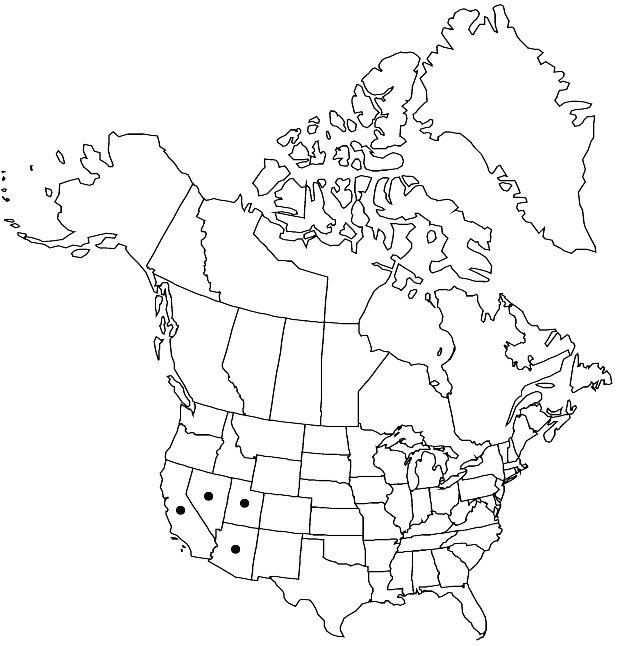Difference between revisions of "Physaria tenella"
Novon 12: 328. 2002.
FNA>Volume Importer |
imported>Volume Importer |
||
| (One intermediate revision by the same user not shown) | |||
| Line 56: | Line 56: | ||
|publication year=2002 | |publication year=2002 | ||
|special status= | |special status= | ||
| − | |source xml=https:// | + | |source xml=https://bitbucket.org/aafc-mbb/fna-data-curation/src/2e0870ddd59836b60bcf96646a41e87ea5a5943a/coarse_grained_fna_xml/V7/V7_1133.xml |
|tribe=Brassicaceae tribe Physarieae | |tribe=Brassicaceae tribe Physarieae | ||
|genus=Physaria | |genus=Physaria | ||
Latest revision as of 22:30, 5 November 2020
Annuals or, rarely, biennials; with a taproot; densely pubescent, trichomes (simple or stellate, sessile or short-stalked), 4–7-rayed, rays usually furcate, rarely bifurcate, (nearly smooth to finely tuberculate). Stems several from base, decumbent to erect, (several-branched, frequently stout), 1.5–6 dm. Basal leaves: blade elliptic, (1.5–)3–6.5 cm, margins entire, repand, or shallowly dentate. Cauline leaves: (proximal shortly petiolate, distal sessile); blade linear to elliptic or obovate, (0.5–)1–3.5(–4.5) cm, margins entire or repand. Racemes loose. Fruiting pedicels (recurved, sigmoid), 5–15 mm. Flowers: sepals oblong, lanceolate, or elliptic, (3–)3.5–6(–7.5) mm, (lateral pair subsaccate, median pair thickened apically, cucullate); petals (yellow to orange), suborbicular or obovate, (5–)6.5–8(–11) mm, (narrowing gradually to broad claw, usually widened at base). Fruits (sessile or shortly stipitate), orbicular or obovoid, often slightly compressed, (3.5–)4–6 mm; valves sparsely pubescent, trichomes sessile and stellate, densely pubescent inside, trichomes simple or branched; ovules 4–12 per ovary; style 2–4.5 mm. Seeds flattened. 2n = 10, 20.
Phenology: Flowering Feb–May.
Habitat: Sandy soils, gravel, clayey loam, loose rocky slopes, washes, desert slopes and plains, lava hills, frequently in or near bushes
Elevation: (0-)600-1900 m
Distribution

Ariz., Calif., Nev., Utah, Mexico (Sonora).
Discussion
Selected References
None.